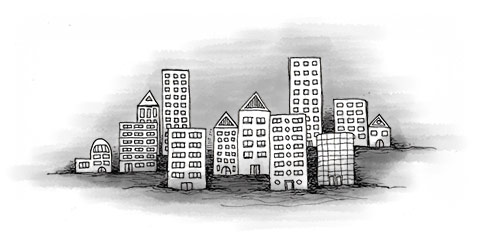Rentals in Ghana are not cheap!
Most foreigners would assume that rental property in Ghana is fairly inexpensive, but it is actually quite the opposite.
Ghana’s rental market runs on a pro-landlord etiquette. Landlords in Ghana are aware of the housing deficit, and because of that, rent amounts can be very high. Additionally, rent can be freely negotiated, and rent increases are unrestricted. Therefore, expect to pay about US$2,500 to US$3,000 a month, on average, for a three-bedroom house or unfurnished villa in Accra.
The Rent Act states that landlords are only allowed to charge six months rent in advance for a down-payment Although, many do not follow this, and generally a down payment of one to three years rent will be requested.
What’s included?
Make sure that you know exactly what will be included with your rental. Few properties in Ghana are fully equipped, and you most likely will have to negotiate for certain items such as kitchen appliances, air conditioners, water tanks and generators.
It is very important that you sign an inventory before you pay any down payment to the landlord.
Lease terms
Be aware that there is no statutory framework that protects consumers in Ghana’s housing market. Agreements are made between the two parties involved, therefore, it is advised for you to be very vigilant when negotiating lease terms and contracts with the landlord.
Generally, a term of lease will be the duration of the advance payment - one to three years, with an option to renew included in the contract.
Tenants may terminate a contract early, but must inform the landlord three months in advance. It is usually expected that the tenant find someone else to take over the lease for the duration of the contract. Otherwise, the vacating tenant may have to wait on the repayment of the down payment because the landlord may have already invested or spent the money.
Evictions
Evictions are also a problem in Ghana, though generally only for those who do not pay the agreed amount of rent. A tenant will be court-ordered to to vacate only if the landlord has expressed the immediate need of the property for his family’s personal use, or has demonstrated that the property will be under renovation or a remodeling project. The Rent Act does state a law that an evicted tenant must be allotted enough time to relocate before being asked to vacate the premises.

